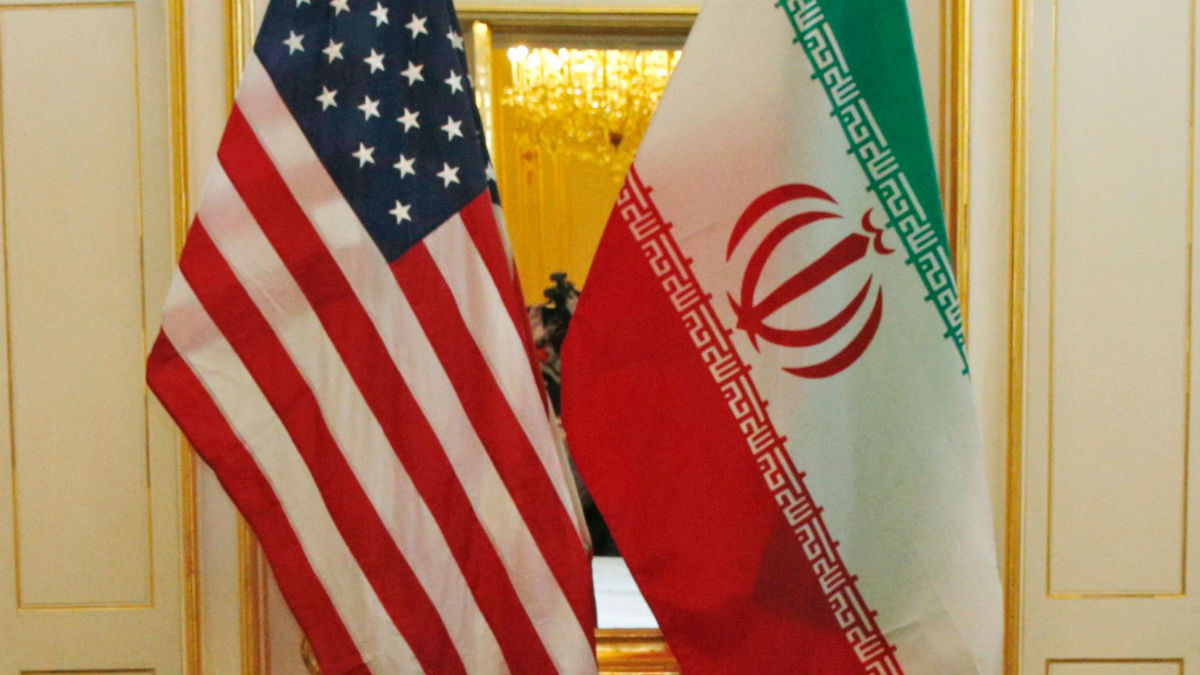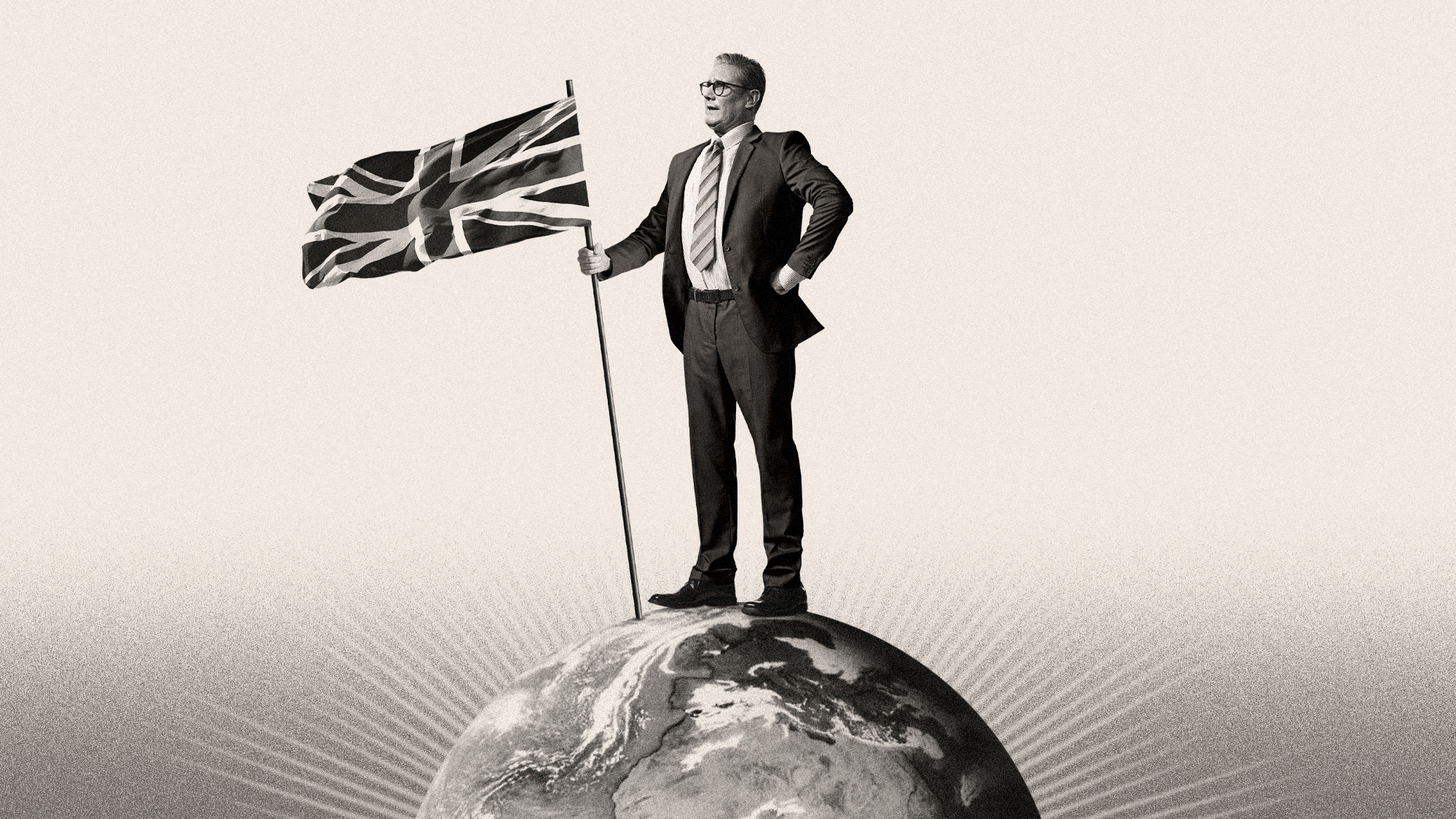Did the US pay 'cash for hostages' to Iran?
Outcry as $400m is delivered to Tehran on the day five American prisoners are released

A free daily email with the biggest news stories of the day – and the best features from TheWeek.com
You are now subscribed
Your newsletter sign-up was successful
In January, Tehran released five American prisoners in exchange for seven Iranians who had been detained in the US for violating sanctions. Now the transfer has been hit with accusations of President Barack Obama's administration paying "cash for hostages".
What happened?
On Wednesday, the Wall Street Journal reported that a US delivery of $400m (£304m) in cash - "wooden pallets stacked with euros, Swiss francs and other currencies" - arrived at Tehran airport on 16 January - the same day Iran released five US prisoners. The report prompted hawks such as Republican senator Tom Cotton to accuse Obama of paying a "ransom to the ayatollahs for US hostages".
The Week
Escape your echo chamber. Get the facts behind the news, plus analysis from multiple perspectives.

Sign up for The Week's Free Newsletters
From our morning news briefing to a weekly Good News Newsletter, get the best of The Week delivered directly to your inbox.
From our morning news briefing to a weekly Good News Newsletter, get the best of The Week delivered directly to your inbox.
But the US doesn't pay hostage ransoms, does it?
Officially, no. Obama said precisely that at a news conference the day after the story broke. "This wasn't some nefarious deal," he told reporters.
US Secretary of State John Kerry had earlier said: "The United States [...] does not negotiate ransoms."
So the cash and the hostage release was just a coincidence?
A free daily email with the biggest news stories of the day – and the best features from TheWeek.com
You could say that. The payment was part of a $1.7bn (£1.29bn) settlement the Obama administration reached with Iran over a failed arms deal signed just before the fall of the Shah in 1979. It just happens that the weekend of the payment saw formal implementation of a landmark nuclear deal between Iran, the US and other global powers.
What's the problem, then?
With the US presidential election just three months away, the story has inevitably acquired additional political momentum. Republican contender Donald Trump tweeted that it was a "scandal" for Hillary Clinton, his Democratic rival, who started the talks that produced the nuclear deal - although the agreement was concluded under John Kerry.
Cotton said it "put a price on the head of Americans".
What else are critics saying?
As well as being a long-standing bete noire of the US, Iran is a regional power and a player in several conflicts in the Middle East. "Cash is an excellent way to pay terrorists, fund Hezbollah in Syria and the Houthis in Yemen, and buy dual-use, nuclear-related hardware," says the Wall Street Journal.
-
 The plan to wall off the ‘Doomsday’ glacier
The plan to wall off the ‘Doomsday’ glacierUnder the Radar Massive barrier could ‘slow the rate of ice loss’ from Thwaites Glacier, whose total collapse would have devastating consequences
-
 Trump’s fuel blockade puts Cuba in crisis mode
Trump’s fuel blockade puts Cuba in crisis modeIN THE SPOTLIGHT Plummeting tourism, scrambling airlines and rolling blackouts are pushing Cuban society to the brink
-
 ‘The mark’s significance is psychological, if that’
‘The mark’s significance is psychological, if that’Instant Opinion Opinion, comment and editorials of the day
-
 The high street: Britain’s next political battleground?
The high street: Britain’s next political battleground?In the Spotlight Mass closure of shops and influx of organised crime are fuelling voter anger, and offer an opening for Reform UK
-
 Is a Reform-Tory pact becoming more likely?
Is a Reform-Tory pact becoming more likely?Today’s Big Question Nigel Farage’s party is ahead in the polls but still falls well short of a Commons majority, while Conservatives are still losing MPs to Reform
-
 Taking the low road: why the SNP is still standing strong
Taking the low road: why the SNP is still standing strongTalking Point Party is on track for a fifth consecutive victory in May’s Holyrood election, despite controversies and plummeting support
-
 What difference will the 'historic' UK-Germany treaty make?
What difference will the 'historic' UK-Germany treaty make?Today's Big Question Europe's two biggest economies sign first treaty since WWII, underscoring 'triangle alliance' with France amid growing Russian threat and US distance
-
 Is the G7 still relevant?
Is the G7 still relevant?Talking Point Donald Trump's early departure cast a shadow over this week's meeting of the world's major democracies
-
 Angela Rayner: Labour's next leader?
Angela Rayner: Labour's next leader?Today's Big Question A leaked memo has sparked speculation that the deputy PM is positioning herself as the left-of-centre alternative to Keir Starmer
-
 Is Starmer's plan to send migrants overseas Rwanda 2.0?
Is Starmer's plan to send migrants overseas Rwanda 2.0?Today's Big Question Failed asylum seekers could be removed to Balkan nations under new government plans
-
 Has Starmer put Britain back on the world stage?
Has Starmer put Britain back on the world stage?Talking Point UK takes leading role in Europe on Ukraine and Starmer praised as credible 'bridge' with the US under Trump